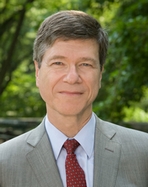European Russophobia and Europe’s Rejection of Peace: A Two-Century Failure
Europe has repeatedly rejected peace with Russia at moments when a negotiated settlement was available, and those rejections have proven profoundly self-defeating. Read more
 Jeffrey Sachs
Jeffrey Sachs
There are no easy answers to Europe’s migration crisis. Perhaps that fact alone – the reality that all options are insufficient – could be the basis to build a consensus out of the bitter divisions that now grip the continent. The answer to the crisis in the longer term will depend less on migration policy and much more on smarter ways to avoid such crises in the first place.
Those brave politicians who welcome the refugees, like German chancellor Angela Merkel, take a stand of basic human decency. People are fleeing for their lives from terror and war. To deny them asylum would violate the most basic standards of compassion. For you were strangers in a strange land, God reminds the Israelites in setting forth the principles of social justice.
Those favouring asylum are also in fact pragmatic. The international law of refugees (including the 1951 refugee convention) bars the forced return of refugees to their homeland. The European court of human rights has long upheld this principle. And with all the walls, and border patrols, Europe is no island. Nor for that matter is the US. Trying to forcibly stop the migrant influx into Europe would fail.
Yet those who oppose the refugees have their own valid points. It is true, and not simply cruel, to point out that the flow of refugees reflects the massive and repeated failures of western foreign policies. The US in particular has repeatedly used military force to try to impose its preferred regimes in Afghanistan, Iraq, Libya and beyond. This regime-change policy lies in tatters and more than 10 million displaced people are the consequence.
It is also sensible, and not merely cruel, to demand from the politicians a longer term strategy. Accepting a one-time influx of refugees is compassionate. Asserting that Europe’s door is open to migrants and refugees without limit is reckless, not compassionate. No high-income society can throw its doors open to all interested comers: the press of humanity to Europe (or the US) would be essentially unlimited. Gradual migration is important and replenishes our societies; wide-open doors are unfeasible and unmanageable.
The article’s full-text is available here